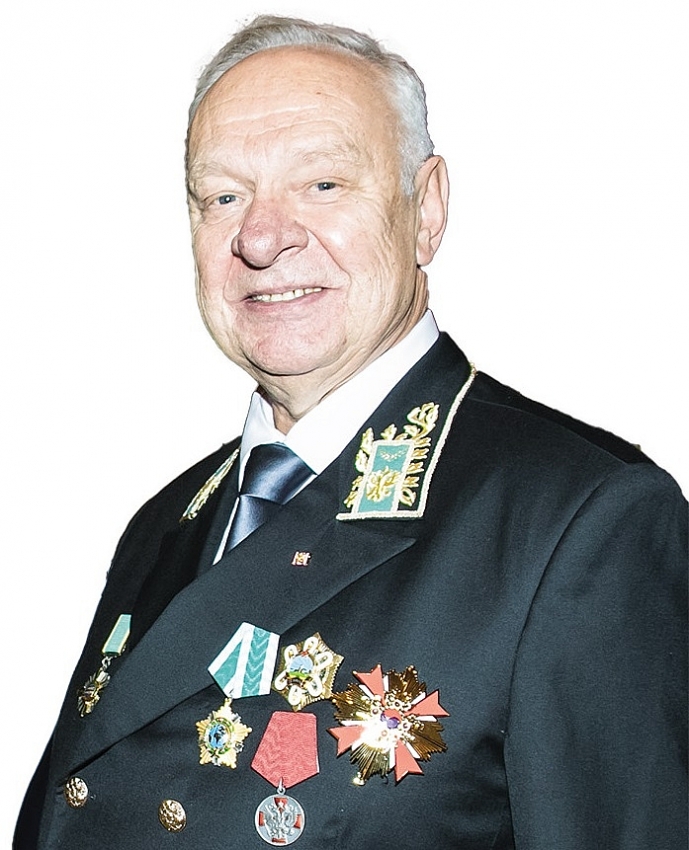Marking two years of strong Russia-Vietnam trade ties
 |
| Konstantin Vnukov |
What, in your view, is the main significance and impact of the Vietnam-Eurasian Economic Union Free Trade Agreement (FTA) on the ties between Vietnam and Russia, after the first two years?
The FTA surely has had the biggest impact on trade co-operation between the two countries. Since the FTA came into force on October 5, 2016, we have witnessed sustainable growth in all bilateral economic indexes.
Regarding bilateral trade - two-way trade turnover last year increased by almost 30 per cent, to $5.2 billion. This allowed Vietnam to firmly establish itself as one of the top trade partners of Russia in the ASEAN region. In the first eight months of this year, the rate increased by almost 20 per cent. I think that this is quite impressive.
We are also happy that in the first eight months of 2018, Russian exports to Vietnam have soared by almost 50 per cent, thanks to a boost in traditional export items such as machinery and equipment, oil products, and metal, as well as new export items like foodstuffs and agricultural products.
Meanwhile, Vietnam also increased its exports to Russia in remarkable fashion, in areas such as electronics, aquatic products, fruit, tea, and coffee.
What about investment projects between the two countries?
A positive trend has been seen in our investment co-operation. Among the major projects, Vietnamese fresh milk producer TH Group has commenced the construction of its dairy farm and milk processing mega-complex project in Kaluga region, which is about 100 kilometres from Moscow.
Vietnam’s Party General Secretary Nguyen Phu Trong took part in the ground-breaking ceremony during his visit to Russia in September.
Generally speaking, Vietnam has invested about $3 billion into Russia thus far. Notably, more than 10 years ago, the figure was merely $100 million. I believe that the investment co-operation potential between both countries remains tremendous, especially in Siberia and the Russian Far East, where the best conditions have been created for foreign investors and businesses.
Of course, Russia also wants to expand in Vietnam. Regarding the energy sector, Russian companies have been operating in the country effectively for a long time. Up to 30 per cent of crude oil and about 25 per cent of gas exploited in Vietnam are done so by enterprises involving Russian investment, including Zarubezhneft, Rosneft and Gazprom corporations.
Another important task for us is to implement the inter-government protocol on the establishment in Vietnam of GAZ and KAMAZ automobile-assembling companies. I hope that in the near future, all procedures for the establishment will be completed, and Russian auto firms can operate well in Vietnam.
Though the FTA offers many advantages for the two countries, challenges remain. What do you believe are the main obstacles yet to overcome?
Of course, the implementation of the FTA will face some challenges. State agencies of both countries have yet to create proper legal framework for trade of certain types of goods.
For example, it takes a long time to reach an agreement on animal and phytosanitary certificates. Also, enterprises themselves may still have little information about certain rules and legal requirements of both nations.
I think the key point here is that relevant agencies must stand ready to act in conjunction with each other. For instance, this summer, after being informed by Vietnamese authorised agencies about problems in Russian wheat imports, agents from our Federal Service for Veterinary and Phytosanitary Supervision (Rosselkhoznadzor) visited Vietnam to discuss this question.
I believe that the settlement of issues between the two countries will continue in the near future.
What else can be done to maximise the potential of the FTA in Russia-Vietnam trade and investment ties? And what is your expectation about investment inflows for the two nations in the time to come?
The economic-trade co-operation development between Russia and Vietnam would require continuous efforts from the state and enterprises, as well as agencies of the Eurasian Economic Commission.
I think that the key task is how to attract the attention of small- and medium-sized enterprises to our respective markets. In order to double Russia-Vietnam trade turnover, we have to increase our efforts and work on all fronts.
This is now being expedited by the Russian Export Centre, which not only provides consultancy services for Russian firms, but also allocates export-related credits for them.
The centre has already helped introduce Russian products in Vietnam and connect Russian firms with Vietnamese companies.
What is important is that efforts must be made to raise awareness and reduce business costs by reciprocally removing administrative hurdles and simplifying different procedures.
For example just this month, an agreement on a system of online licensing and verifying goods origin, inked by customs agencies from Vietnam and all members of the Eurasian Economic Union, took effect.
It will enable the acceleration of customs clearance for goods, greatly benefiting both Russian and Vietnamese entrepreneurs.
What the stars mean:
★ Poor ★ ★ Promising ★★★ Good ★★★★ Very good ★★★★★ Exceptional
 Tag:
Tag:
Related Contents
Latest News
More News
- Vietnamese businesses diversify amid global trade shifts (February 03, 2026 | 17:18)
- Consumer finance sector posts sharp profit growth (February 03, 2026 | 13:05)
- Vietnam and US to launch sixth trade negotiation round (January 30, 2026 | 15:19)
- NAB Innovation Centre underscores Vietnam’s appeal for tech investment (January 30, 2026 | 11:16)
- Vietnam moves towards market-based fuel management with E10 rollout (January 30, 2026 | 11:10)
- Vietnam startup funding enters a period of capital reset (January 30, 2026 | 11:06)
- Vietnam strengthens public debt management with World Bank and IMF (January 30, 2026 | 11:00)
- PM inspects APEC 2027 project progress in An Giang province (January 29, 2026 | 09:00)
- Vietnam among the world’s top 15 trading nations (January 28, 2026 | 17:12)
- Vietnam accelerates preparations for arbitration centre linked to new financial hub (January 28, 2026 | 17:09)





















 Mobile Version
Mobile Version